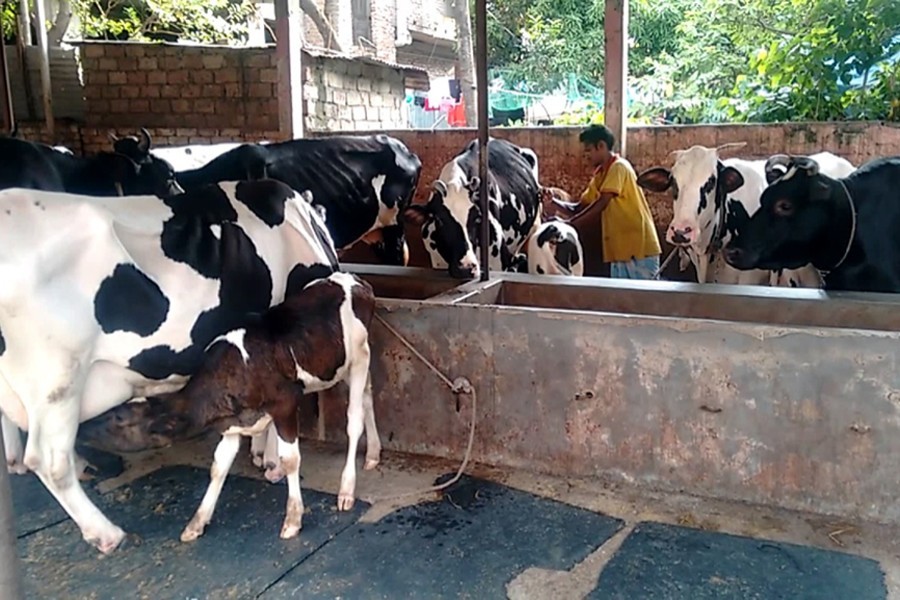
Published :
Updated :

Like other industries of Bangladesh, the livestock sector, which includes the poultry and the dairy industries, has also been adversely impacted by the shutdowns enforced to combat the pandemic. Unfortunately, the sector has so far remained outside the purview of the government-provided stimulus packages for the small and medium enterprises (SMEs). This is despite the fact that the livestock industry is part of the SMEs. The damage sustained by the poultry and dairy enterprises during the shutdown months between March and May last year has been immense. The sector is yet to recover from it.
As the shutdowns have thrown millions out of jobs and income opportunities, it has reduced common people's purchasing power. So, it has negatively impacted the demand for poultry and dairy products in the market. As a result, prices of poultry and dairy products have fallen sharply forcing many small farms to close down business, while those still running are facing heavy losses as 50 per cent of their products are lying unsold and the rest is selling at a price far lower than normal. And due to a drastic fall in consumption of eggs and poultry meat, the poultry industry is experiencing a record slump unprecedented in the last 12 years, both in terms of production of and demand for its products. As reported by a poultry farmers' apex body, the industry that creates some 2.5 million jobs, has its demand market shrunken by some 30 per cent. Consequently, the loss to the poultry sub sector alone is estimated to be at Tk 70 billion.
Worse yet, as a knock-on effect, the demands for poultry feeds, drugs and other inputs and services related to the industry are also witnessing a historic low. In fact, the entire chain of activities linked to this industry worth Tk 350 billion and which contributes, according to the World Bank (WB), 1.7 per cent to the GDP, is facing an uncertain future. In the same breath, the other component of the livestock sector, the dairy, is also in similar straits. As 50 per cent of the milk produced by dairy farmers nationwide could not be sold during shutdowns, the amount of loss they have sustained since mid-March last year, is to the tune of USD 470 million.
What is especially concerning about the entire livestock sector is the situation of the women linked to it both directly and indirectly. In fact, of some 6.0 million workers the sector engages, 40 per cent are women. Simply put, the sector at the moment is in an existential crisis. To recover the huge loss it has been incurring and protect the livelihoods of hundreds of thousands of people employed and otherwise involved with this sector, it needs urgent government intervention. The support may be in the form of the stimulus the government has already extended to other members of the SMEs sector. More to the point, the sector is in need of immediate cash assistance. The government needs to act fast. For, it is not just the survival of a sector of the economy that is in question. To be precise, it is the nation's food and nutritional security that is at real stake.


 For all latest news, follow The Financial Express Google News channel.
For all latest news, follow The Financial Express Google News channel.